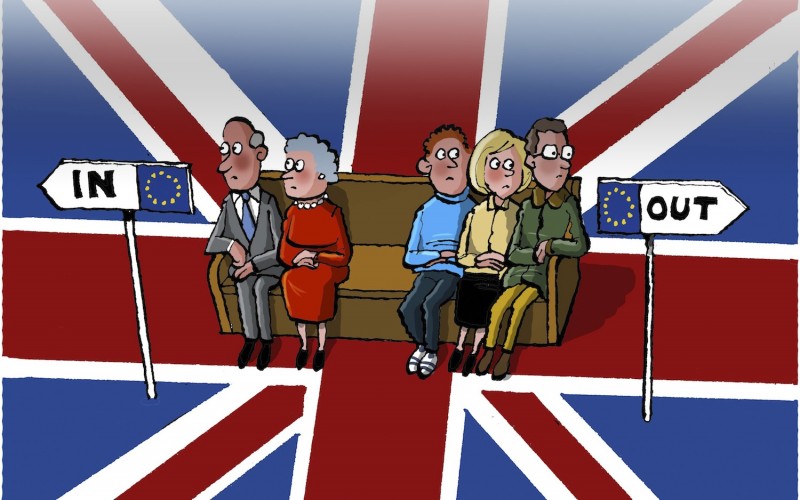The latest dust-up in the British royal family has been getting a lot of attention. So much attention, in fact, that it’s got its own cute name: “Megxit.” Get it? It’s a play on the first name of Meghan Markle, who along with “Prince Harry” has decided to leave the royals for a life of their own, and the British exit from the European Union, which has been shorted to the clunky name “Brexit.” There’s some of that famous British wit for you!
 Those of us who don’t follow the comings and goings of the Windsor clan can honestly wonder at all the hoo-ha. So one of the royals and his wife want to break off. So what? The royals have seemed like a dysfunctional clan for a long time now. Once you get beyond Queen Elizabeth, with her respectful cloth coats and her frumpy hats and head scarves and her clear sense of regal obligation, you’ve got a pretty strange family, with its share of scandals and crackpots and weird uncles hanging out with Jeffrey Epstein. Why in the world do people pay attention to them?
Those of us who don’t follow the comings and goings of the Windsor clan can honestly wonder at all the hoo-ha. So one of the royals and his wife want to break off. So what? The royals have seemed like a dysfunctional clan for a long time now. Once you get beyond Queen Elizabeth, with her respectful cloth coats and her frumpy hats and head scarves and her clear sense of regal obligation, you’ve got a pretty strange family, with its share of scandals and crackpots and weird uncles hanging out with Jeffrey Epstein. Why in the world do people pay attention to them?
What’s interesting to me is whether the current controversy might actually cause the British people to jettison the royal family, once and for all. Consider this: in the deal that’s been worked out, “Harry and Meghan” will give up their titles, stop being supported by taxpayer dollars, and will repay $3 million in taxpayer funding for renovations to their home. $3 million for home remodeling? That’s living pretty high on the hog by any measure. How many British taxpayers are wondering whether that was money well spent in the first place, even if it is repaid?
And then there’s this: Harry and Megs apparently want to leave so that they can go off on their own, get rich, and serve as spokespeople for their favorite causes. How are they going to get rich? After all, Harry may look dashing in those different military uniforms he wears from time to time, and Meghan Markle was an actress who achieved some small measure of notoriety before she took up with a royal, but they aren’t exactly well positioned to rake in huge amounts of cash thanks to their skill sets and intrinsic capabilities. No, if they make money, it will be because they’ll be trading on their celebrity and residue royalty, from people who will pay to rub elbows with them on corporate boards and at fundraisers. The fact that Harry was born into an anachronism will let them become filthy rich without having to worry about those depressing and pesky royal duties weighing them down.
I don’t know why Americans pay attention to this stuff, but we can certainly be grateful to the Founding Fathers for throwing off the yoke of the British monarchy and ensuring that we aren’t saddled with supporting “royals” with our tax dollars so they can spend millions on home remodeling. The question is, when are the British people going to wake up and do the same?

 In the wake of the Brexit vote,
In the wake of the Brexit vote,